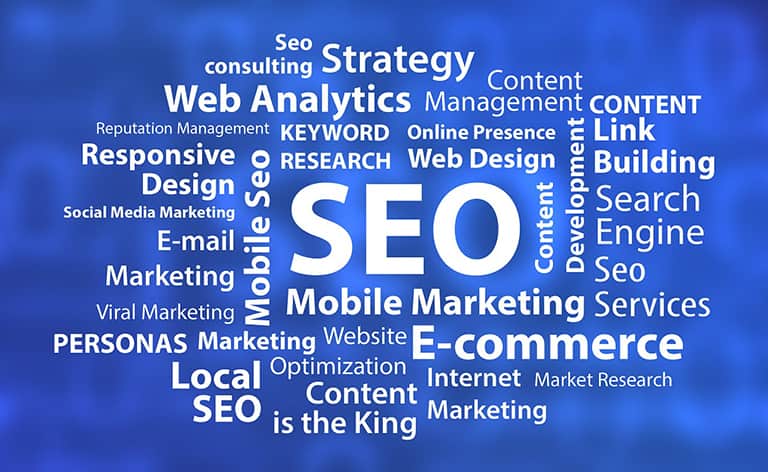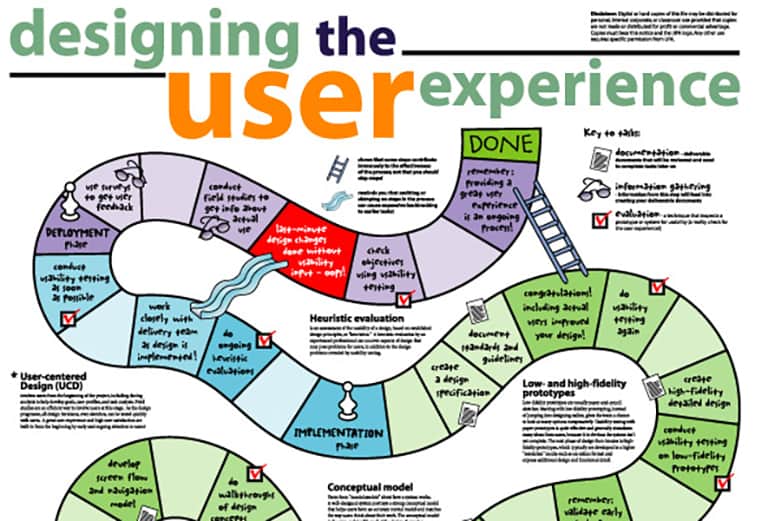
When you have questions that need answers, where do you turn first? Whether you’re on a mobile device or a desktop computer, Google is the nation’s go to resource for just about anything. When you have a website with answers you want to provide, a solid search engine optimisation marketing strategy will help you reach the right searchers at the top of the Google results pages.
SEO stands for search engine optimisation, which is the combination of all the techniques used to drive traffic to your site from, you guessed it, search engines. With more than 60% of consumers starting the buying process on platforms like Google or Bing, helping your site rise through the ranks is the best way to increase visibility and drive new sales.
If there’s any question why SEO marketing matters at this point, think about your own search behaviour. If you’re like most users, you usually won’t even scroll past the first search engine results page (SERP). You need to rise to the top, and there are proven methods to get you there. Want to better understand how you can boost your search rankings? Here are 10 things you need to know for effective SEO.
1. Branding and SEO marketing go hand-in-hand
One mistake that business owners make is failing to let their brand inform their SEO strategy. Branding may seem like a completely separate part of your business, but your visual identity, brand message, voice, and similar factors actually help search engines determine what your business does and what search terms it’s most relevant for. The role of SEO is to capitalise on the brand and ensure it always ranks highly for those relevant terms.
A strong brand is also crucial for building your authority and online reputation, both of which can increase clicks into and on your site, then ultimately boost your search engine ranking.
2. Keyword research is critical

Adding keywords throughout your website content is a key SEO marketing strategy, but it does matter what keywords you’re actually adding. More likely than not, your target audience uses search queries that are unique from those used by general consumers.
So how do you find the right keywords to target? Most SEO experts use online keyword research tools like the Google Ads Keyword Planner or the SEMrush Keyword Magic tool to build a list of keywords and phrases with strong monthly search volumes and (preferably) limited competition.
Don’t immediately dismiss a potential keyword just because it doesn’t have the highest search volume. Long-tail keywords—which are highly specific phrases that contain at least three words may not get as much search traffic, but if you rank high for these industry or product-specific keywords, you’re more likely to convert. Similarly, if you own a local business, you can benefit from a local SEO strategy that targets search terms directly related to your target market. You may also consider using your SEO tools to look at what keywords your competitors are targeting, too.
3. High-quality content ranks higher
When people search on Google, they want to get the best answers in as few clicks as possible. Because of this, search engines prioritise great content first.
Whether you’re writing copy for your homepage, a product page, a landing page, or your blog, you need to make sure you maximise your web page’s readability and provide the clearest information possible. Using page titles and headers that include keywords is an effective SEO marketing tactic that can easily enhance readability and increase click-through rates (which is a search engine ranking factor).
While it may be tempting, creating high-quality content means no keyword stuffing. Google actually penalises web pages that use keywords in excess, as this prevents brands from ranking high purely based on quantity. Instead, you’ll need to write in full sentences and creatively inject keywords throughout your site. Don’t forget to use your own brand’s name in your copy, as you don’t want to be the second search result when customers are searching directly for you.
If you’re always busting out quality content, Google’s algorithm will take notice. Over time, your brand authority will rise and push you toward greater visibility.
4. Your visual content can boost your rankings, if you follow best practices

Google Images offers business owners the chance to rank high outside of traditional SERPs. Even if your full web page doesn’t take the number one spot, the images on your website still can.
The best images to include in your web pages for SEO marketing are high quality and unique. Duplicate content performs worse which means branded and original content wins hands down every time.
Make sure your images aren’t increasing your load times. Your image file sizes should always be under 500 KB and optimally be between 1,500 and 2,500 pixels wide.
While keywords on your image won’t be taken into consideration by Google’s algorithm, keywords inserted behind the scenes will. When preparing your photo to publish on your site, you can boost an image’s search ranking even further by adding your target keyword to its file name, alt text, and title tag.
5. Keyword placement matters
The more places your target search terms appear, the more likely your website is to make it to the top of your target SERPs. So if adding a keyword to something as minimal as your image’s file name can boost your search engine ranking, where else can you insert keywords to boost your brand visibility?
Before you publish your page, you should be able to add a page title and a meta description, which make up the text that is actually shown from your web page when you appear on an SERP. Adding keywords to both of these areas can easily inform search engines that your web page is relevant to a specific search term.
In the image below, the page title is in blue text, while the meta description is directly below.

We also recommend optimising your URL structure of your web pages by including keywords instead of a jumble of letters and numbers. When publishing your web page or blog post, you may see an option to add a meta tag as well. There’s no harm in adding a keyword there, though it won’t make too much of a difference.
6. Link-building boosts authority

When trusted websites link back to your business, this tells Google that you’re a brand to trust, too. This is why many experts use link-building as a primary SEO marketing strategy.
Link-building is the process of gathering more backlinks (otherwise known as inbound links) from a high-quality website back to your own. Search engines will take this as an endorsement from the trusted site—they’re essentially telling their visitors to visit your web page. Your authority will steadily increase with the number of backlinks you have.
Backlinks don’t always happen organically, especially when you run a small business. Many freelancers and entrepreneurs who are just starting out gather backlinks by doing guest posts on external sites. Doing some simple email outreach can also help you raise your inbound link numbers quickly in a small time frame. It never hurts to reach out to bloggers and website owners to ask them to simply add a backlink on content they’ve already written.
As you’re gathering inbound links, don’t forget outbound links—links on your website that lead to another site. You may think that outbound links will drive people away from your site, but they’re actually extremely healthy for your SEO. They tell Google what other pages are related to your content, making your brand more relevant for certain keywords than it was before.
Furthermore, you’ll also want to add internal links throughout your content, which lead users to other pages on your site. This further tells search engines about the importance of your web pages and how your website is structured.
7. Social media can make a difference
SEO marketing is all about increasing organic traffic to your website, but that doesn’t mean your social media presence doesn’t play a role. While getting social media shares don’t count as link-building (this would create too many ways to cheat the system), search engines do look for social signals to figure out how relevant you are.
These social signals may include:
The better the quality of your presence on each social network—and the more frequently you use SEO tactics within your social media pages—the more likely it is that you’ll rank higher on relevant SERPs.
8. Great user experiences boost SEO

Have you ever jumped on a website, only to jump ship because it was taking ages to load? It’s not a pleasant user experience. Search engines know that users are looking for more than great information—they also want to seamlessly receive the information you’re sending.
In order for your website rank to improve, you need:
These search engine ranking factors reflect how likely your user is to stay on your site, as opposed to being turned off by poor UX. With these factors in mind, two of your SEO tactics should include limiting file sizes and optimising your site for all devices.
Great web design can also help you achieve all of these major ranking factors. When your website or landing page has a natural flow and consistent colours, fonts, and messaging, visitors will naturally make their way through.
9. SEO marketing can be more powerful than PPC ads
Pay-per-click (PPC) advertising is a common alternative to SEO marketing that allows you to pay for the top spots on relevant SERPs. It’s an easy way to dramatically increase traffic over a short period of time, but just because it’s easy doesn’t mean it’s the best option you have.
We’re all faced with content overload the second we go online, so it makes sense that searchers avoid the content that’s more aggressively pushed at them. According to Moz, nearly half of all consumers rarely or never click on PPC ads, and the majority have a strong preference for organic search results.
Don’t get us wrong, PPC ads are great tools for marketing campaigns. But when you want to drive up your brand visibility over time, your SEO efforts can lead to more sustainable growth. You continue to show up at the top of relevant Google search results without spending on every single click. What’s not to like about improving your ROI and brand awareness all at once?
10. Web page performance must be monitored
As consumers, we love the way search engines work because they’re constantly updating what’s relevant and what’s not. As a business owner, this means your search engine marketing should be an ongoing process that doesn’t just end because you want it to.
Over time, keep track of what web pages are doing well and which ones need to be re-optimised for the present day. Don’t be afraid to readjust your target keywords and content as needed to keep perfecting your web page SEO and maintain your brand authority on the web.
Are you looking for a professional website design and search engine optimisation service?
Vibrance builds mobile-friendly websites that don't disappoint and provides SEO services. Just give us a call on 01354 694369 / 07496 103208 or email steve@vibrance-net.co.uk